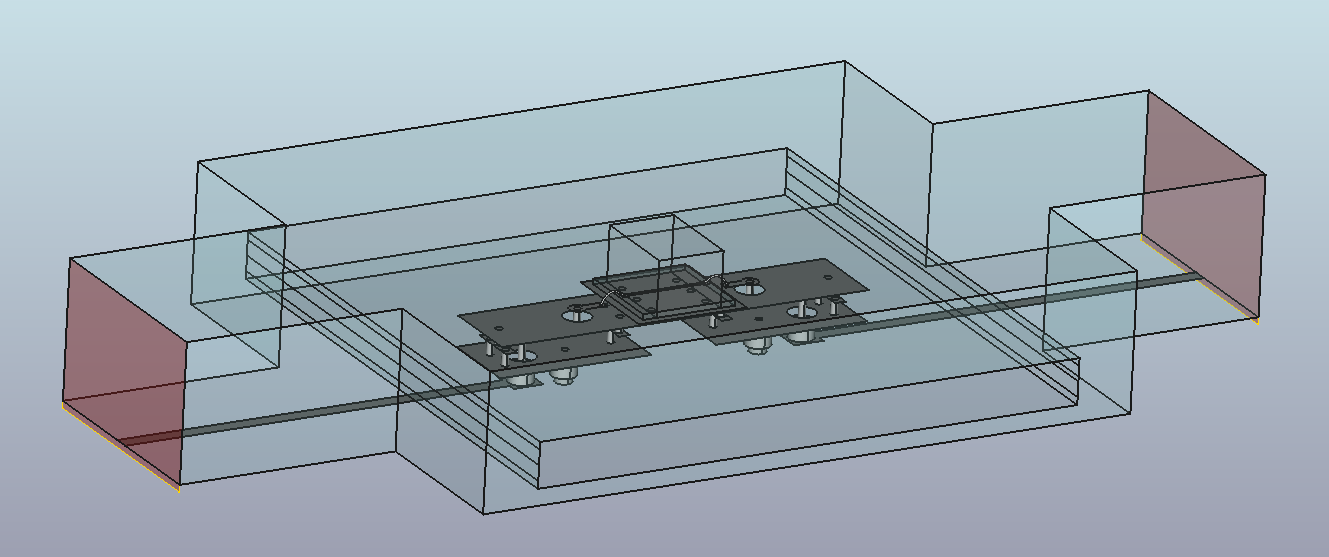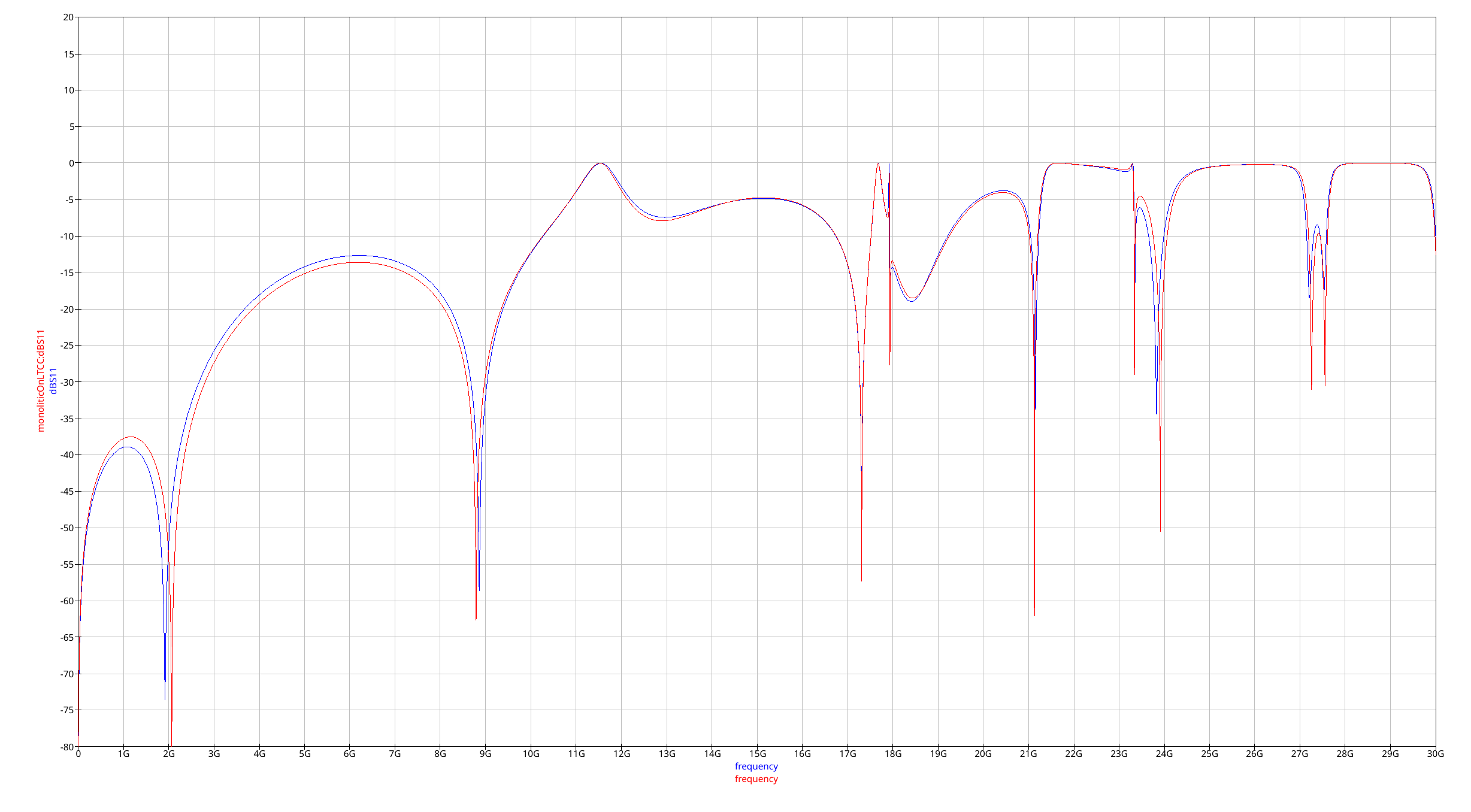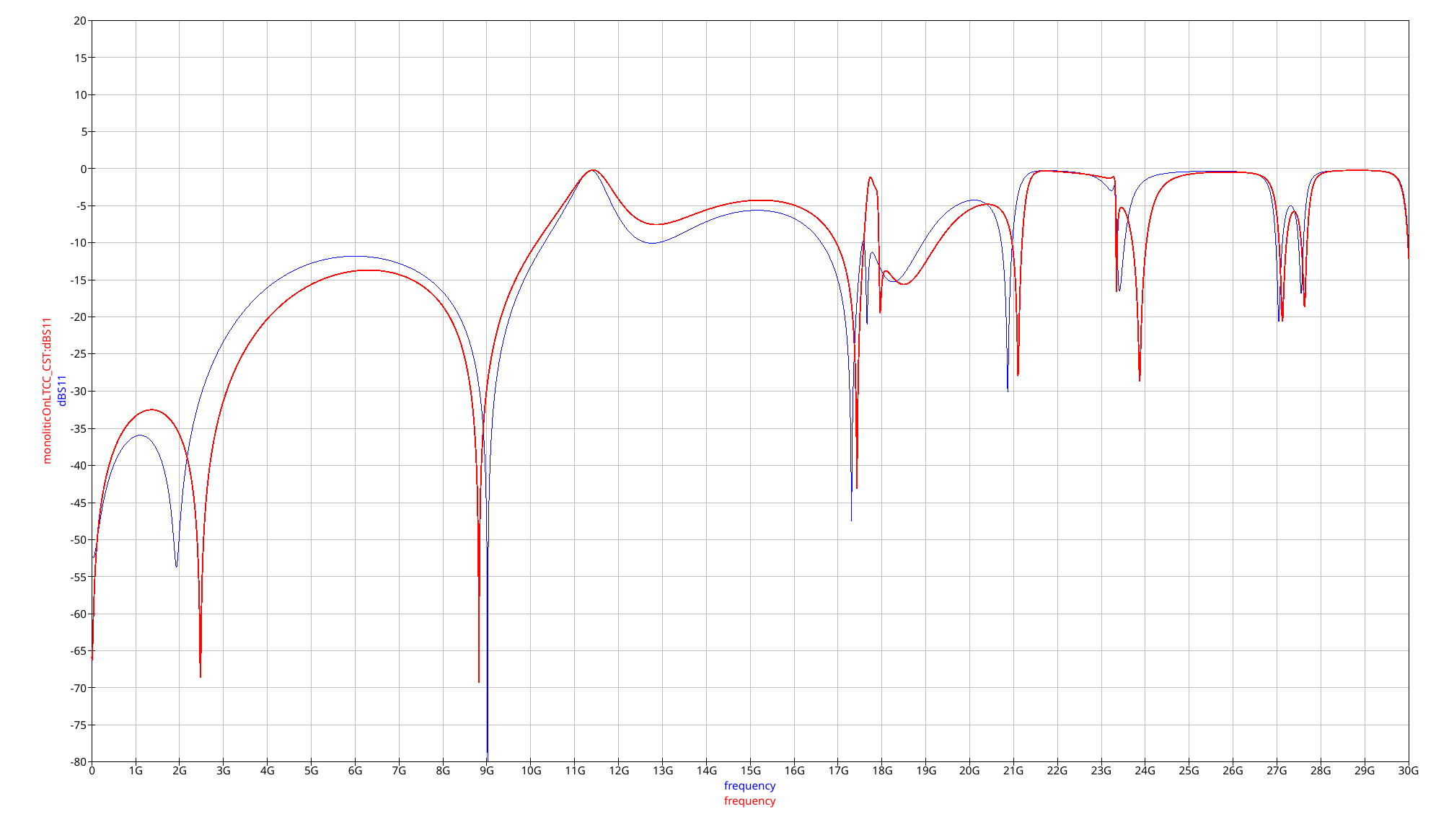Hierarchical Electromagnetics
Fast electromagnetic designs and accurate full wave modelizations
High Frequency Packaging
The Hierarchical Electromagnetic Modeler provides an accurate modelization of RF circuits
composed of active devices and a connecting network. The Hierarchical Electromagnetic Modeler
can be used to generate an equivalent circuit which represents the electrical response of the passive
parts and includes a set of ports aimed at the connections of electrical circuits associated with the active devices.
This capability is demonstrated in a test case consisting of a small monolithic
circuit (realized on a GaAs substrate) that is mounted on the top layer of a LTCC circuit which, in turn,
is mounted on a PCB.
The bottom layer (GND) of the monolitic circuit is soldered on a metallic pad of the LTCC circuit.
This pad is connected to the bottom side (a GND layer) of the PCB trough a series of staggered via holes that
transverse the internal layers of LTCC and the PCB substrate. The electrical connections between
LTCC and PCB conductors are provided by a Ball Grid Array. The connection between the signal conductors of
the monolitic circuit and LTCC circuit are realized by a couple of bonded micro-wires.
The simulated electrical structure is shown in the figure 1. The small box depicted in the center
of the image is enclosing the monolitic device and is used to separate the active
part (the monolitic circuit) from the passive part (the exterior of the box).
In the electromagnetic simulations the active circuit has been replaced by a simple micro-strip line on the top layer of the GaAs substrate. The electrical response obtained with a full wave simulation of the whole structure was compared with the response of the assembled subcircuits associated with two parts. The result of this comparison is shown in figure 2 .


The figure 3 shows the same kind of comparison between the full wave and assembled responses computed using
a commercial EM solver (CST Microwave studio). It can be seen that in this test case the agreement of the two responses
shown in figure 2 is much better than in figure 3. This results demonstrates that Hierarchical Electromagnetic Modeler
provides a better modelization of passive networks connecting active devices. This capability is very important in
the design, in example, of MCMs (Multi Chip Modules) and SIPs (Systems In a Package) operating at very high frequencies.
Another unique characteristic of the Hierarchical Electromagnetic Modeler relies in its capability
to generate an equivalent circuit that is composed of lumped elements and is granted to be causal and passive.
The availability of this kind of circuit, which is very well suited for time domain simulations, was not exploited in
the current test case (for being it a RF circuit), but may become very important in case of packaged digital circuits.
